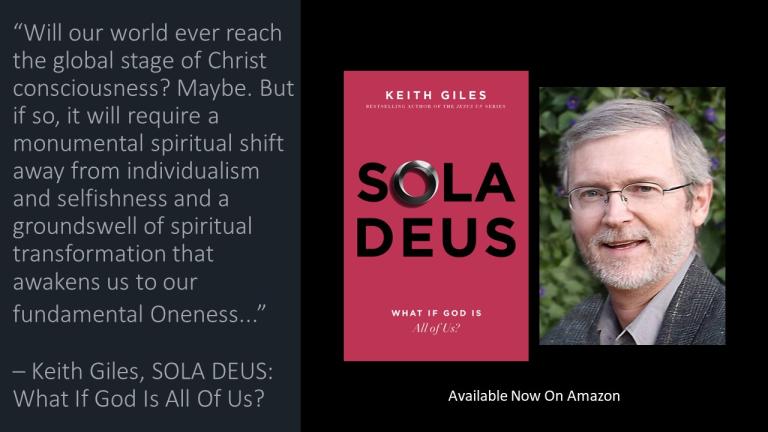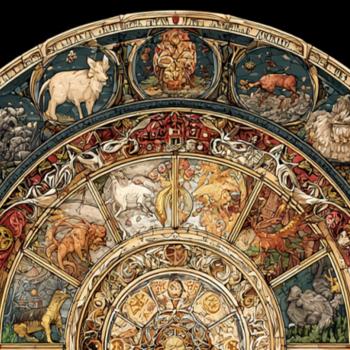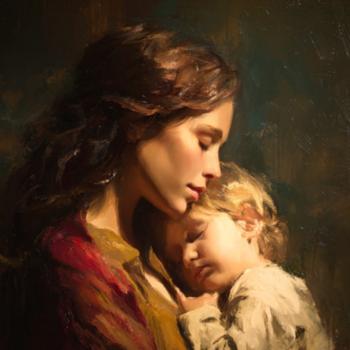The simplest way to understand this saying is that those who are focused on growing their wealth are not interested in the things of the Kingdom of God, but the kingdom of earth. These are two divergent paths. One is either focused on the Kingdom of God, and therefore values community, connection, sharing, giving and relationships, or one is focused on earning money, building wealth – the things of this worldly kingdom – and therefore values collecting rent, investing in real estate, throwing parties for friends, and chasing down people who owe you money.
This theme of faith versus wealth is one that permeates the New Testament Gospels and the epistles of Paul, James and John as well. Those who are wealthy are almost always contrasted with those who have faith, and only those wealthy who share their wealth with the needy are seen as righteous.
This is the reason why so many early Church Fathers wrote about the importance of charity for the rich among them in the Christian community and often suggested that the wealthy could only purchase their salvation by giving away their excess to those around them who had so little.
For example, here is a small sampling of quotes from a few of those Church Fathers on this very topic:
“You are not making a gift of your possession to the poor person. You are handing over to him what is his.” – Ambrose of Milan (340-397 AD)
“The property of the wealthy holds them in chains . . . which shackle their courage and choke their faith and hamper their judgment and throttle their souls. They think of themselves as owners, whereas it is they rather who are owned: enslaved as they are to their own property, they are not the masters of their money but its slaves.” – Cyprian ( 300 AD)
“The bread in your cupboard belongs to the hungry man; the coat hanging in your closet belongs to the man who needs it; the shoes rotting in your closet belong to the man who has no shoes; the money which you put into the bank belongs to the poor. You do wrong to everyone you could help but fail to help.” – Basil of Caesarea (330-370 AD)
“Not to enable the poor to share in our goods is to steal from them and deprive them of life. The goods we possess are not ours but theirs.” – John Chrysostom (347-407 AD)
One of my favorite quotes on this question of faith and wealth comes from The Didache, and early collection of teachings from the disciples of Jesus which was used to initiate new believers into the faith in the First Century:
“Share everything with your brother. Do not say, “It is private property.” If you share what is everlasting, you should be that much more willing to share things which do not last.”
So, for many of us these quotations might shock us or even offend us. Why? Because we may have been born into a middle class family or own property or – at least in comparison to those who are in real poverty – be considered wealthy and prosperous people who have more than we need.
But, like it or not, the New Testament – including the words of Jesus and Paul – are very critical of those who have wealth and own property. We are just trained by our pastors and leaders not to see it because, quite frankly, the Americanized version of the Gospel tends to celebrate private ownership and capitalism whenever possible. So, those verses where Jesus and Paul and James and John are most critical of the rich are ignored or perhaps spiritualized so that “the poor” becomes a reference to those who are spiritually unaware of the Gospel message.
Here in this saying, Jesus tells us a story that focuses on all the ways that our wealth immunizes us to the values of the Kingdom of God and concludes that “buyers and traders will not enter the places of my Father,” which is not about keeping them out but rather is an observation of how their own blindness prevents them from wanting to enter God’s Kingdom in the first place.
**

Sola Deus: What If God Is All Of Us? by Keith Giles is now available on Amazon in Paperback and on Kindle.
Keith Giles is the best-selling author of the Jesus Un series. He has appeared on CNN, USA Today, BuzzFeed, and John Fugelsang’s “Tell Me Everything.” He hosts the Second Cup with Keith podcast, and co-hosts the Apostates Anonymous podcast, and the Heretic Happy Hour Podcast. Find out more about his online courses HERE>















